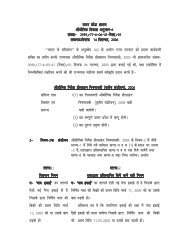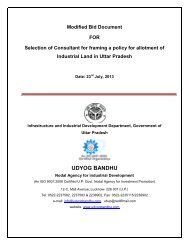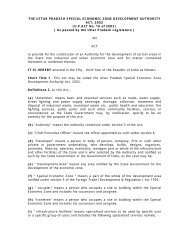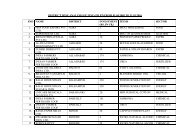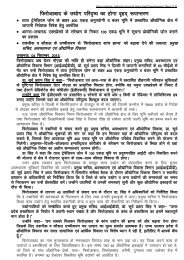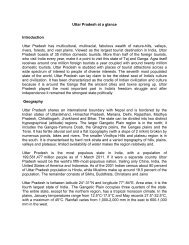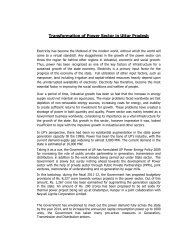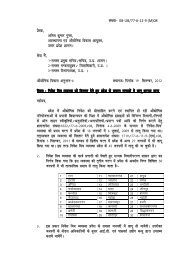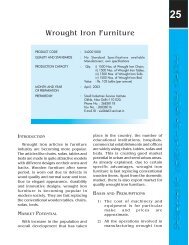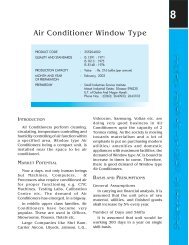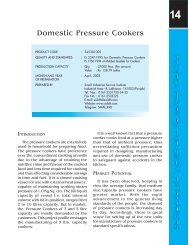PART - III - Udyog Bandhu
PART - III - Udyog Bandhu
PART - III - Udyog Bandhu
Create successful ePaper yourself
Turn your PDF publications into a flip-book with our unique Google optimized e-Paper software.
Annexure V<strong>III</strong>Some Salient Points about Disinvestment1- Default in payment by the bidder to a financial institution : Ministry of Disinvestment isguided by its guidelines dated 13.7.2001 as mentioned earlier. It would be seen from theseguidelines that if the bidding party or its consortium members are defaulting in payment ofdues to financial institutions, they are not automatically disqualified. This is mainly because ifthe bidding parties have more than one business, there may be cases where some of thebusinesses may be incurring losses due to which it may not be possible for the bidding party tohonour the commitment with regard to payment of interest/repayment of principal in thatparticular unit. So, any default on account of poor performance of a unit cannot ipso factomean that the party who is controlling the business is incapable of running any other business.What would be relevant here is whether there has been a wilful default on the part of thebidding party, which could happen due to diversion of funds from one unit to another.However, it may be difficult in such cases for Ministry of Disinvestment to determine whetherdefault by a particular party is a wilful one. Since the institutions, which have lent may claimthe bidder as a wilful defaulter, while the bidder may say that he is not a wilful defaulter andthat his default is due to reasons beyond his control. This is really the task of a regulator i.e.RBI/SEBI to adjudicate on such matters who can decide whether the default was wilful orwhether the practice adopted by the bidder is unhealthy, unethical or unscrupulous. MODIguidelines do cover such adverse orders by regulators.2 - Disqualification of a consortium member : In case of a consortium bid, even on defaultby a member of the consortium the Government reserves the right to disqualify all members ofthe consortium. The other option that would be considered is that the bidder removes thedefaulting member from the consortium.3 - Cases coming up against the bidder after EoI : In case there are no cases pending at thestage of EOI against any bidder but this comes up later on, the bidder is supposed to discloseall relevant material envisaged in the Guidelines dated 13/7/2001 to the Government wheneverit occurs or it comes to his notice and Government reserves the right to disqualify the bidder onreceipt of such information at any stage of the process.4 - Chargesheet by agency such as CBI : A charge sheet by an agency such as the CBI doesnot automatically disqualify a bidder. The charge sheet by an agency like CBI would result indisqualification if the matter relates to the security and integrity of the country. In other cases,there has to be a conviction by a court of law.5 - Indictment/adverse order by a regulatory authority : An indictment /adverse order by aregulatory authority will disqualify either:-(a)(b)If such order casts a doubt on the ability of the bidder to manage the public sectorunit when it is disinvested orIf such an order relates to a grave offence where grave offence is defined to be anoffence of such a nature that outrage the moral sense of the community e.g. fraud.It is clarified that the decision in regard to the nature of the offence would betaken on a case-to-case basis after considering the facts of the case and relevantlegal principles by the Government.150



